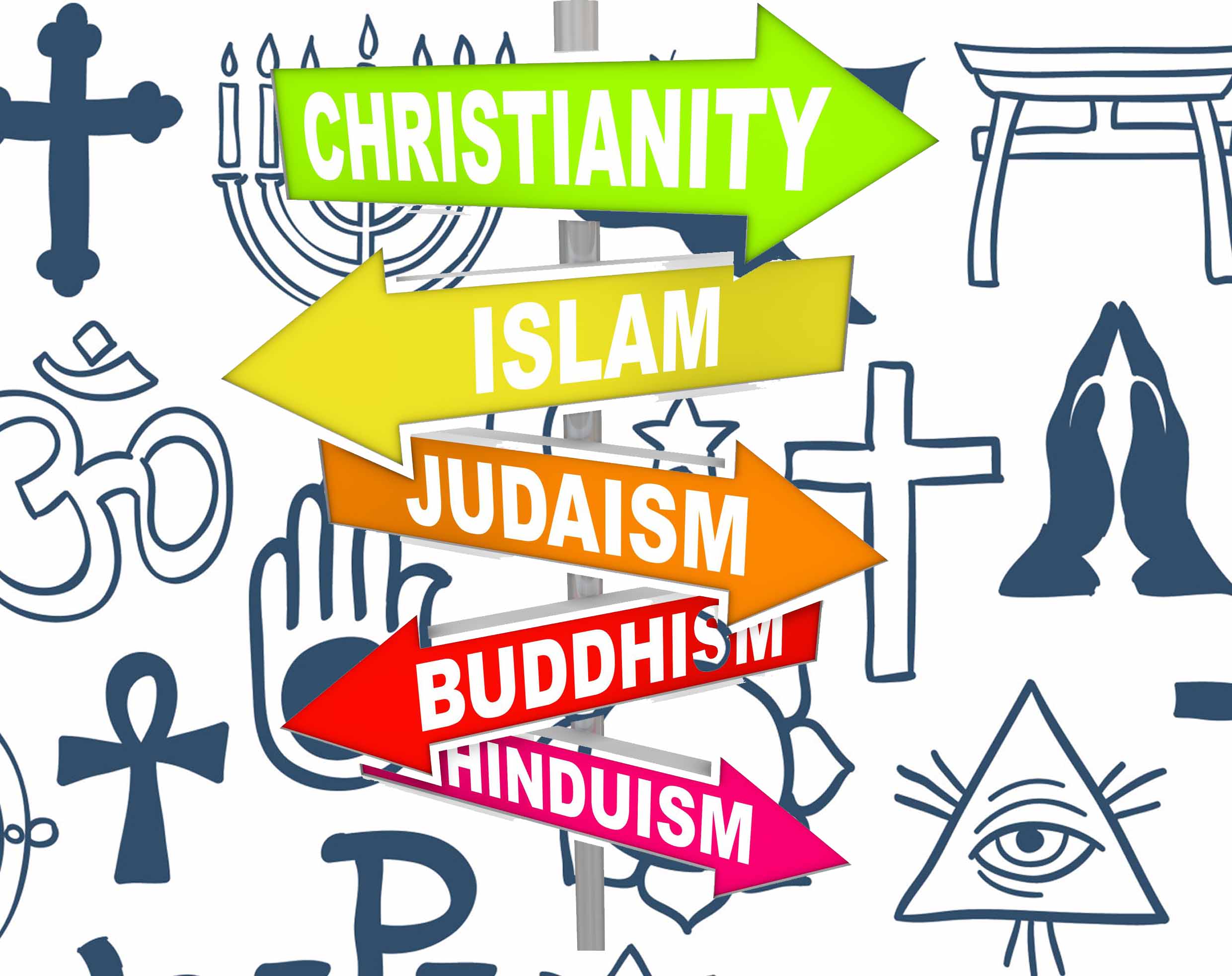Brief Summary of Major Religions
Abrahamic Religions
Judaism, Christianity and Islam, trace their lineage to the tribal patriarch Abraham, and are called Abrahamic religions or Abrahamnism. Judaism was founded around 7th century BCE, Christianity in the 1st century CE, in the area present day Israel. Islam was founded in the 7th century CE in the present day Saudi Arabia.
The civilization that developed in Mesopotamia influenced the Hebrew Bible and the book of Genesis in particular. Abraham is said to have originated in Mesopotamia. All Abrahamic religions claim to be monotheistic, worshipping one exclusive God, although one known by different names.
Judaism (Hebrew-Yehuda, Latin-Judah)
Judaism regards itself as the descendants of Jacob, a grandson of Abraham. The followers of Judaism are called Jews. In Jewish theology, God is strictly monotheistic. The Hebrew name of the God is YHWH (Jehovah). The sacred scriptures of Judaism are the Torah (Hebrew Bible). It was composed between 1400 BCE and 400 BCE. The text is considered holy down to the last letter. The practice of Judaism is guided by the interpretation of the Torah and the Talmud (legal ruling by the Rabbis). There are about 13 million Jews in the world and 82% of them are in Israel and the United States. Based on their practice, Jewish people are divided into; Orthodox, Conservative, Reform and Reconstructionist.
The Bible
The Bible (from Greek ta tiblia “the book”) is a collection of sacred texts or scriptures that both Jews and Christians considered to be inspired by God. The Bible is not just one book. It is a library of books, put together in one volume. The authors of these books are unknown. These books were composed at different times. All kinds of literary form: history, historical novels, parables, allegories, poems are intermingled.
Hebrew Bible
The first five books of the Hebrew Bible are called Pentateuch or Torah or the law by the Jews. It includes: Genesis, Exodus, Leviticus, Numbers and Deuteronomy. It contains the story of the formation of the people of God: Abraham and patriarchs, Moses and the oppressed Hebrews in Egypt, their migration from Egypt to the Promised Land and the discourses of Moses. The Hebrew Bible is not only law: it is history, poetry and philosophy of the highest order. The Hebrew Bible was greatly influenced by the Babylonian literature, going back to 3000 BCE. The Hebrew Bible has total of 39 books. Christians call it the Old Testaments.
Jewish Ethics
The Ten Commandments, also known as the Decalogue, are the set of biblical laws relating to the ethics and worship of Judaism. They play a fundamental role in Judaism, Christianity, and Islam. They were likely been influenced by Mesopotamian laws. Nobody knows when they were written or who wrote them. They are:
- Thou shalt have no other gods before me
- Thou shalt not make unto thee any graven image
- Thou shalt not take the name of the Lord thy God in vain
- Remember the Sabbath day to keep it holy
- Honour thy father and thy mother
- Thou shalt not kill
- Thou shalt not commit adultery
- Thou shalt not steal
- Thou shalt not bear false witness against thy neighbor
- Thou shalt not covet neighbor’s house, neighbor’s wife, nor his male servant, nor his female servant, nor his ox, nor his donkey, nor anything that is your neighbor’s.
Hebrew Bible, Exodus20:2-17 and Deuteronomy 5:4-21
The Ten Commandments form the basis of Jewish laws. Most traditions of Christianity hold that the Ten Commandments have divine authority and continue to be valid. Judaism and Islam also share the central practices of fasting, almsgiving and dietary laws. Lawful food is called Kosher in Judaism and Halal in Islam. Both practice the circumcision of males.



